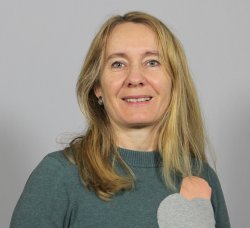Developing knowledge to strengthen control and preparedness for diseases in Norwegian swine production
The research project, PreparePig, has the goal of improving the health status of Norway’s pig population by establishing highly effective diagnostic methods and developing new knowledge about contact networks and important infection control measures in the swine industry.
The Norwegian pig population has a highly favorable health status, with low consumption of antimicrobials and a documented freedom from several important pathogens. Maintaining the excellent health status of Norway’s pigs is important for animal welfare, national food security, and competitiveness in international trade.
The project will introduce a new multiplex assay for detecting antibodies from saliva samples collected on ropes that farmers can mount in pig enclosures. Rope sampling has the potential to test multiple individuals using the same sample and is less invasive than blood sampling. An advantage using a multiplex assay is that it detects antibodies for multiple pathogens at the same time. The method delivers fast and accurate results, and we can apply it to more herds for better documentation of the health status.
PreparePig will shed light on control practices in different categories of herds (breeding herds, finishing herds, and small-scale production) and analyze movement patterns to identify herd types that have a higher risk of introducing or spreading diseases. The project will design targeted campaigns to prevent the spread of infectious diseases. Through simulations, we will test how changes in trade patterns, new control measures and improved monitoring, can delay or reduce disease spread.
For simulating disease spread, PreparePig will develop a model to evaluate infection prevention and control strategies. The model will utilize a large amount of animal health data and provide a tool for the industry and the authorities to use for preparedness in the future.
Partners
- Nortura
- Animalia
- KLF
- Norsvin
- University of Edinburgh
- Statens Veterinärmedicinska Anstalt – SVA







